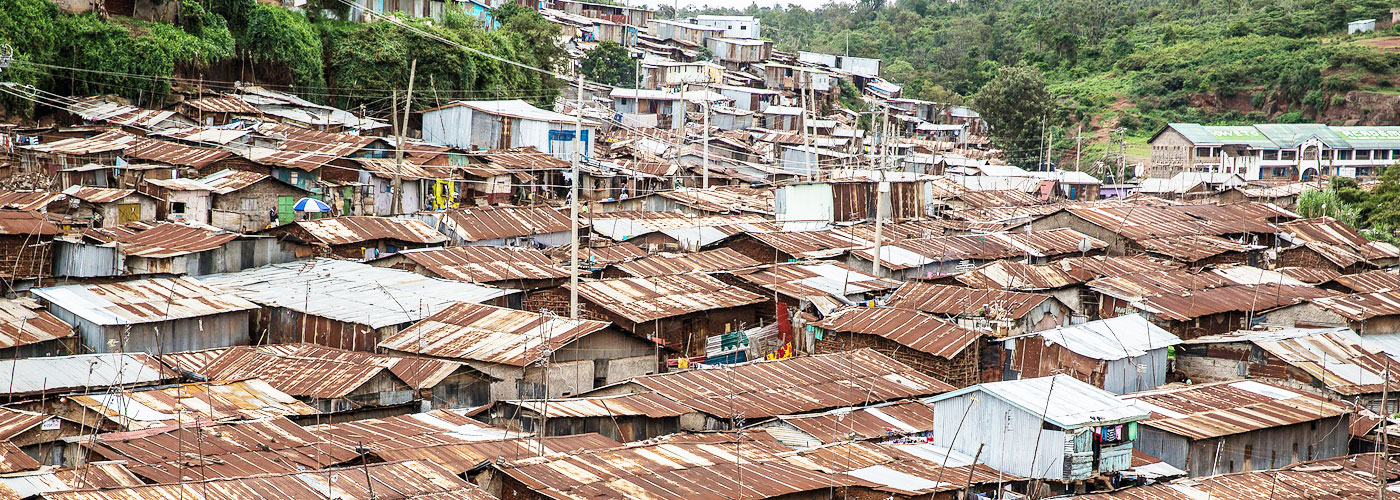This post is part of a series of stories featuring the entrepreneurs who participated in Unreasonable East Africa’s 2015 program.
Veronica’s 6 month-old daughter, the youngest of her two children, was severely dehydrated. In Europe or the U.S., that might precipitate a quick web search or a trip to the pediatrician. But Veronica lives in Kibera, an area of Nairobi, Kenya, that is frequently cited as Africa’s biggest urban slum. Nairobi’s infant mortality rate is 40 out of 1000—compared to 6 in 1000 in the U.S.—and like millions of others in Kenya, Veronica lacks access to basic healthcare. Every day in Kenya, this lack of access causes the death of 300 children under five years old. Furthermore, in Kenya 20 women die daily from preventable conditions associated with pregnancy and child-birth.
Nairobi’s infant mortality rate is nearly 7x higher than the rate in the United States. Tweet This Quote
Veronica could have been at a loss for how to respond to her child’s sickness. But on this occasion, she opened her cell phone and sent a text asking for help. She was using Totohealth, an SMS service designed to help guide mothers through the first few years of their children’s lives. The service sends weekly texts, based on a child’s birthdate, to alert parents to developmental milestones and things to look for.
“Even in low income settings like Kibera, the majority of people have basic phones,” explains Malele Ngalu, marketing director for Kenya-based Totohealth. “We utilize SMS technology to help reduce maternal mortality and child mortality and to detect developmental abnormalities in early stages.”
Totohealth is an SMS service designed to help guide mothers through the first few years of their children’s lives. Tweet This Quote
Almost half of Kenyan mothers do not give birth in a hospital and, thus, receive little professional care or education on basics such as how long to breast feed, what to do in the case of diarrhea and vomiting, or where to go for an emergency.
Totohealth’s text messages target specific developmental stages and help parents differentiate between normal behaviors and signs that something is wrong and might require professional care.
The company was founded in 2014 by Felix Kimaru for who wanted to apply his background in computer science to solving one of the continent’s biggest problems. Users subscribe to the service for free; the cost—about 25 cents per person a month—is covered by county governments, who see it as a way to improve community health. Once they’ve registered, users get weekly messages about what to expect from their children.
For 25 cents per person per month, users receive weekly texts and access to a help-desk with Totohealth. Tweet This Quote
“It’s amazing,” Veronica says. “Sometimes I feel like Totohealth is actually watching the baby because I receive messages that describe almost exactly what my baby is going through. Yesterday, I got a message about what to pay attention to as my baby begins to crawl and the next day she started crawling.”
In addition to the weekly text messages, users also have full-time access to a help-desk feature for specific questions and concerns.
“Some of the questions we receive are life threatening,” Ngalu says. “We have a staff of trained medical professionals who respond within minutes.”
Ngalu says he hopes the help desk feature, accessible from anywhere someone has a mobile phone, will help drastically reduce the number of infant and mother deaths.
“Instead of building an app, we take advantage of what’s already used,” Ngalu says. “That’s the difference between what’s happening here and in other countries. SMS is still king in an African environment because over 50 percent of our communities are still remote.”
SMS is still king in an African environment. Tweet This Quote
For Ngalu, working for Totohealth is part of a personal journey. He says he wishes this healthcare platform had existed for his own mother who lost his twin brother.
“I often wonder what my brother would be doing if he were alive,” he says. “The feeling of seeing Totohealth come full circle in my own life has been incredible. My wife and I were able to use the service with our own children.”
The company plans to reach 120,000 parents by the end of 2015 and will continue to market in greater East Africa.
Love Totohealth?
This story also appeared on Collectively and National Geographic.



